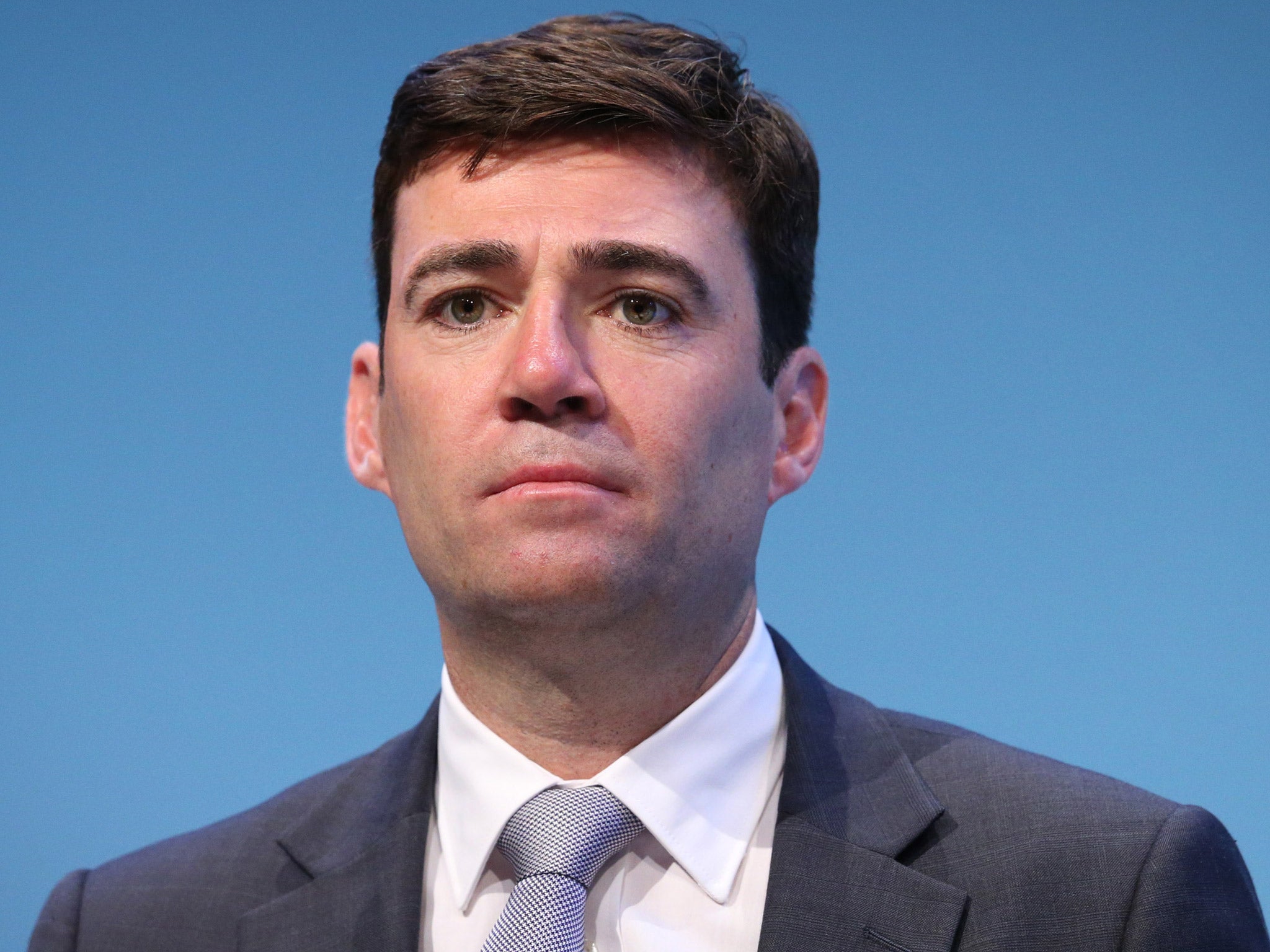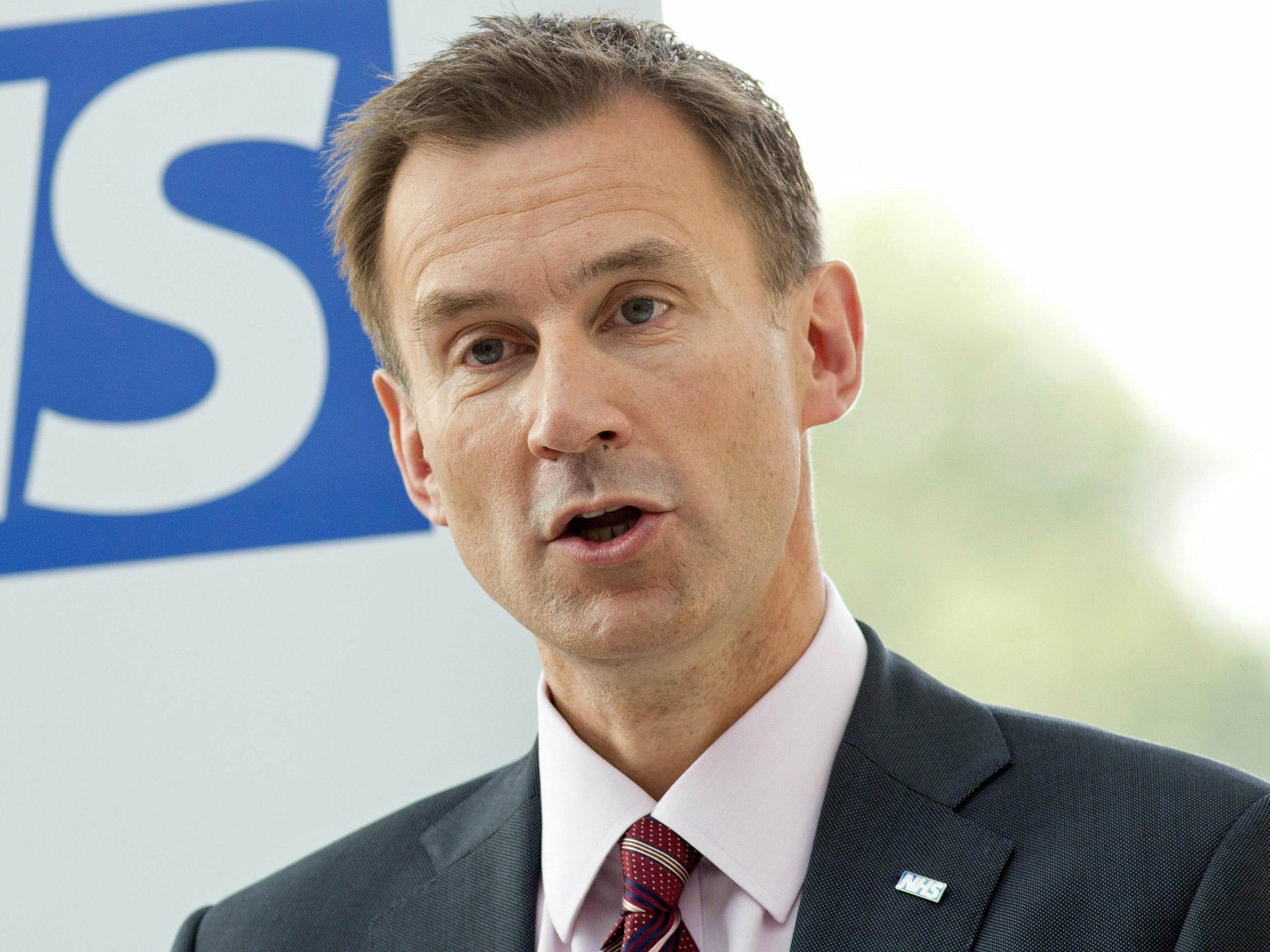Exclusive: New Tory cronyism row as CQC head faces scrutiny
Conservatives accused of politicising the care standards watchdog

Your support helps us to tell the story
From reproductive rights to climate change to Big Tech, The Independent is on the ground when the story is developing. Whether it's investigating the financials of Elon Musk's pro-Trump PAC or producing our latest documentary, 'The A Word', which shines a light on the American women fighting for reproductive rights, we know how important it is to parse out the facts from the messaging.
At such a critical moment in US history, we need reporters on the ground. Your donation allows us to keep sending journalists to speak to both sides of the story.
The Independent is trusted by Americans across the entire political spectrum. And unlike many other quality news outlets, we choose not to lock Americans out of our reporting and analysis with paywalls. We believe quality journalism should be available to everyone, paid for by those who can afford it.
Your support makes all the difference.The Government has been accused of politicising the hospitals watchdog after the chair of the Care Quality Commission (CQC) called for more private sector involvement in the NHS.
David Prior, a former Tory MP who served as the party’s chief executive and deputy chairman, had said in an article in a Sunday newspaper that the NHS was in need of “serious change” and needed “more competition to drive up standards of care; more entrants into the market from private sector companies, the voluntary sector and other care providers”.
But last night Labour’s shadow Health Secretary, Andy Burnham, told The Independent it was “not the job” of the chairman of the independent health watchdog, responsible for ensuring the quality and safety of health and social care services, to make the case for greater private sector involvement in the NHS.
“He made a sustained attack on the NHS and called for more privatisation,” Mr Burnham said. “Were those comments reflecting the policy of the CQC, are they the policy of the Government or are they personal comments? We need to hear from the Government about whether these are appropriate comments for the chairman of the regulator to be making.”
Labour will challenge the Health Secretary, Jeremy Hunt, about the “politicisation” of the regulator in an Opposition Day debate in the Commons today.
The row comes days after the outgoing head of the schools inspectorate Ofsted, Labour’s Baroness Morgan, claimed she had been the victim of a “determined effort from No 10” to appoint more Conservative supporters to top positions in public bodies. Mr Prior’s intervention added to a debate which has become highly politicised since the Coalition’s health reforms. The Government backs the competitive tendering of health services to “any qualified provider”, while Mr Burnham has admitted the former Labour government “let the market in too far” and has warned that competition is harming the health service.

The Conservatives hit back last night, attacking Mr Burnham’s record as Health Secretary and accusing him of putting pressure on the watchdog to downplay problems at hospitals, an accusation he has strenuously denied.
“Andy Burnham knows all about politicising the regulator,” a Conservative source said. “This is the man who phoned the former Labour chair to complain about a press release exposing poor care. We have legislated to give the CQC independence precisely so that they no longer have to fear ministerial interference when they speak out.”
Mr Prior, a former steel executive, was appointed chairman of the CQC by Mr Hunt in December 2012, following the resignation of Dame Jo Williams in the wake of criticism of the watchdog over the Winterbourne View care home scandal and the organisation’s treatment of whistleblowers.
He was the Tory MP for North Norfolk from 1997 to 2001, when he was defeated by the Liberal Democrat Norman Lamb, who is now a Coalition health minister. He has worked in the NHS for 12 years, becoming chairman of the Norfolk and Norwich University Hospital in 2002.
His article in The Sunday Telegraph came one year after the publication of Robert Francis QC’s report on the Mid Staffordshire trust scandal, which catalogued serious care failings. Mr Prior also called for clinicians to take on more leadership roles in the NHS to improve care.

Mr Hunt will say today that the report was “a catalyst to improve care” throughout the NHS. In words which echo Mr Prior’s article, he is expected to say that the work of “transforming the culture” of the health service is not complete, but that the “Francis effect” had seen “a shift in priorities – new inspections, more nurses and a stronger voice for patients”.
However, there was also criticism from NHS nurses today, with a survey of more than 500 in the Nursing Times revealing that more than half still think wards are “dangerously” under-staffed some or all of the time.
Mr Prior’s comments received a mixed reaction in the profession. Dr Mark Porter, chair of the British Medical Association Council, welcomed the call for doctors to take on management roles, but said greater opportunities for the private sector would “destabilise” the NHS.
“The NHS has faced unprecedented upheaval over the past year and the financial outlook remains dire as the service struggles to meet budget shortfalls totalling billions of pounds…” he said. “Doctors are very clear that the primary mission of the NHS is to deliver good patient care. We support patients having real choices about their treatment, but choice should not be used to destabilise good NHS services through using the NHS as a vehicle for privatisation.”
In an Opposition Day debate on A&E services, Mr Burnham will today accuse the Government of blocking the NHS from achieving long-term improvements for patients, arguing that the health reforms have further fragmented the health service, making it harder for hospitals to work with GPs and local authorities to coordinate the care of the most vulnerable patients and relieve pressures on stretched A&Es.
Calling for “a reversal of competition policies in the NHS” he will say that rules that demand more NHS contracts are put out to private tender and oblige NHS organisations to abide by competition law should be revoked.
Join our commenting forum
Join thought-provoking conversations, follow other Independent readers and see their replies
Comments